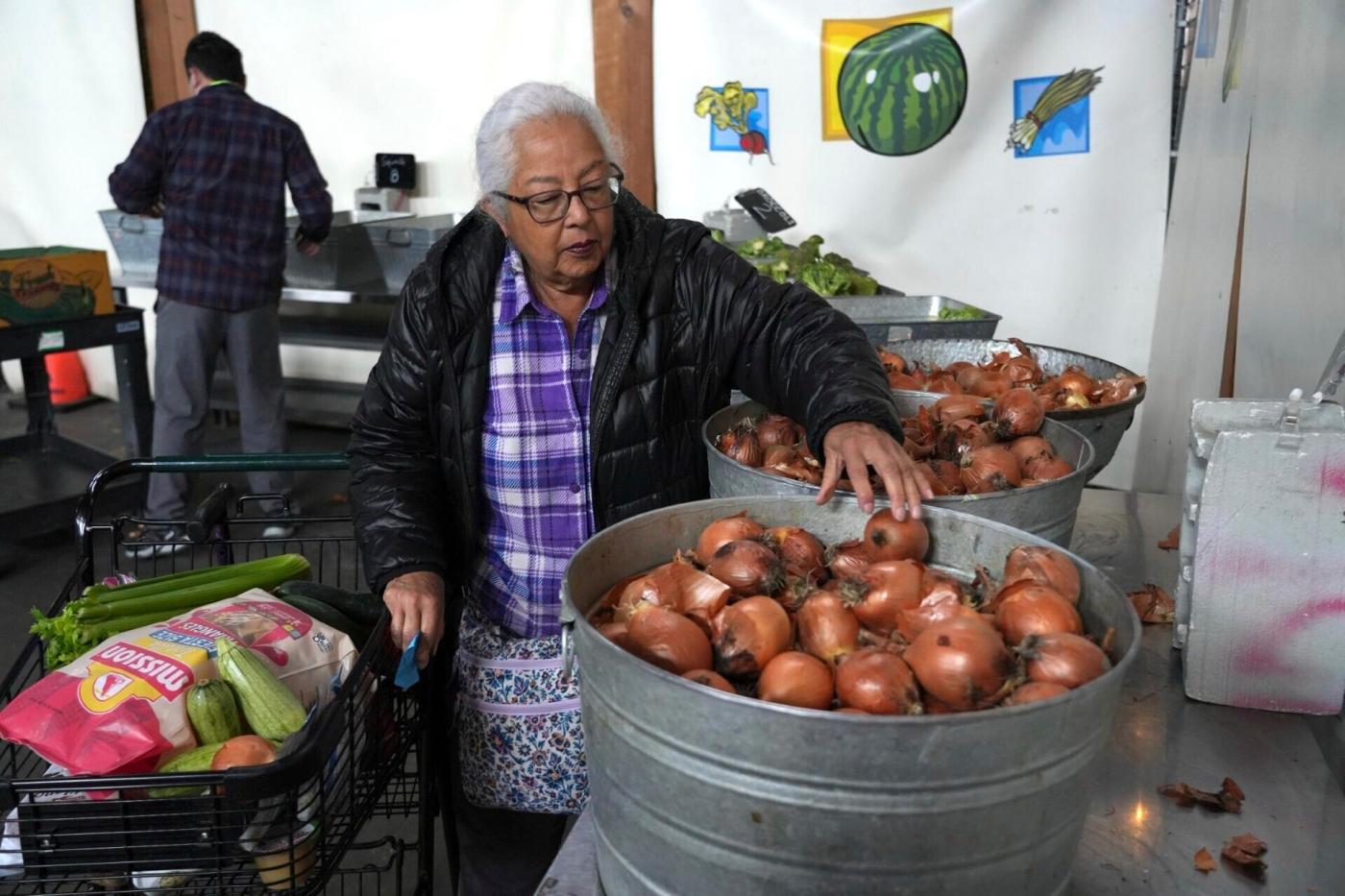Bay Area food banks are sounding the alarm about proposed cuts to a critical federal food assistance program that could result in the loss of up to 9.5 billion meals per year nationally, leaving more families hungry and further straining already overwhelmed hunger-relief nonprofits.
Congressional Republicans, through the budget reconciliation bill, are looking to make drastic cuts to the Supplemental Nutrition Assistance Program (SNAP), which provides food benefits to more than 42 million Americans.
The elimination of roughly $300 billion in federal food benefits over the next decade could impact more than 7 million people — including 2 million children — who would see their food assistance slashed or terminated, according to the Center on Budget and Policy Priorities, a nonpartisan think tank.
On Tuesday morning, leaders at five of the Bay Area’s largest food banks, which provide food assistance from Santa Clara County to the Oregon border, gathered at Second Harvest of Silicon Valley in San Jose to call on elected officials to protect what SF-Marin Food Bank Executive Director Tanis Crosby called “the most effective anti-poverty tool that we have in this country.”
President Donald Trump’s “big, beautiful” tax bill, which passed through the House of Representatives last month, would restructure SNAP and require each state to increase its funding share. It would also impose more work requirements, and raise the cut-off age from 55 to 65 for the end of these requirements.
The Urban Institute recently found that 480,000 families with someone between the age 55 to 64 would lose benefits entirely, and another 312,000 would receive lower benefits.
Related Articles
If US halted fluoride, kids’ cavities would grow by millions, study says
Kraft Heinz pulling artificial dyes from its US products in 2027
At-home health tests are here, but they aren’t always the best option
Give blood, get a Metallica T-shirt: Here are the details, metal fans
‘Gas station heroin’ is technically illegal and widely available. Here are the facts
Gutting food assistance could be especially devastating in California, where roughly 5.4 million residents rely on SNAP, called CalFresh locally, including 1.5 million children and nearly 1.1 million seniors. During the 2024-25 fiscal year, federal funds made up 99% of total funds for CalFresh, according to the California Budget and Policy Center.
Leslie Bacho, the CEO of Second Harvest of Silicon Valley, said that the proposed cuts are the “greatest rollback of food assistance that we have seen in our modern U.S. history” and come at a time when they’re seeing a “historic level of need.”
Second Harvest, which provides food assistance in Santa Clara and San Mateo counties, doubled the amount of people it served when the pandemic hit, going from 250,000 to 500,000 people a month — a trend that has held steady in the years since.
Bacho said that when SNAP gets cut, they see more demand. That’s what happened in March 2023 when emergency SNAP benefits that were enacted at the height of the pandemic came to an end.
“As soon as those benefits went away, we saw an instant increase in our line,” Bacho said.
Food banks nationwide are already feeling the pinch after the Trump administration earlier this year ended several critical programs, including $500 million worth of deliveries to food banks and $1 billion in funding to schools and food banks to purchase food from local farms and ranchers.
“At food banks we are very efficient and we are very committed, but there is no food bank in the country that has enough staff, funds and food to be able to make up this gap,” Bacho said of the cuts.
Allison Goodwin, the president and CEO of Redwood Empire Food Bank in Santa Rosa, said the loss of SNAP benefits will impact more than just the families that rely on the program, but the overall economy, as well.
“Not only are those families with young children given money into their pockets to purchase groceries, those dollars are going back out to the retailers, grocers, food producers, the drivers that get it there and procurement teams,” she said. “It really is about local jobs and the community benefitting from these SNAP benefits.”
Regi Young, the executive director of the Alameda County Community Food Bank, said that cutting SNAP benefits “should be personal to all of us.” He said that it “boggles” his mind that in the “wealthiest country in the world that we would actively dismantle our most successful hunger relief program.”
Many of the programs that Congressional Republicans are proposing to slash have been in the name of rooting out fraud and waste, lowering the national debt and helping to fund Trump’s tax cuts.
But the budget proposals being floated in Congress aren’t a done deal yet.
“The good news is that it’s not over, but time is running out,” Young said. “What are we going to do as a community? What are we going to do as individuals who care about our families? What are we going to do in this moment to ensure that our communities have access to the resources not only that they need, but that they deserve?”





